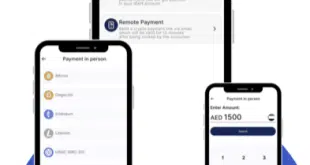Recent U.S Department of Justice demands for documentation about the payment card networks' acceptance rules have the merchant-acquiring industry wondering if the networks are in for another confrontation with antitrust authorities. If so, the issue will involve how much freedom card-accepting merchants should have to seek other forms of payment from customers if they think cards are too expensive. The department's inquiry came to light last week in a brief passage buried in American Express Co.'s third-quarter report to the Securities and Exchange Commission. MasterCard Inc.'s third-quarter report filed Tuesday makes a similar disclosure. A spokesperson for Discover Financial Services says Discover received a similar request. A Visa Inc. spokesperson could not be reached for comment. AmEx said that on Oct. 14 it received a so-called Civil Investigative Demand (CID) dated Oct. 10 from the DoJ's Antitrust Division seeking documents and information about its surcharging and what AmEx called “anti-steering” policies. The latter bans AmEx-accepting merchants from discriminating against AmEx cards in favor of other forms of payment. MasterCard's filing said the DoJ asked for information about its acceptance rules for merchants, “particularly with respect to merchants' ability to steer customers to payment forms preferred by merchants.” The filing adds that the DoJ is seeking information that focuses “on reasons merchants may have decreased their acceptance of certain cards, information on penetration rates by merchant category, cobrand cards and transactions in various countries.” The DoJ won't give details about its requests. “I don't have anything for you at this time,” a DoJ spokesperson tells Digital Transactions News via e-mail. Surcharging, which is the merchant practice of charging a cardholder a fee for using a card, and steering have been governed by the networks' acceptance policies for years. The networks want credit and debit cards to be on equal footing with cash and checks as payment options for consumers despite that fact that cards generally cost merchants more, at least up front, to accept. The networks frown on surcharging but permit variants in some cases, particularly for catalog or online purchases where cash or checks are impractical. Public agencies often insist on surcharges as a condition of acceptance. “Surcharging is something we discourage, but if you [a merchant] do surcharge, you have to have parity with other card products,” an AmEx spokesperson tells Digital Transactions News. In other words, AmEx, which generally costs merchants the most among the major card brands to accept, doesn't want its cards to cost consumers more to use than Visa, MasterCard, or Discover. Nor do the other networks want to be at a disadvantage to rival payment brands or cash and checks when consumers make purchases. “The networks have a variety of rules that limit merchants in some ways at the point of sale to steer customers,” says K. Craig Wildfang, a partner with Robins, Kaplan, Miller & Ciresi L.L.P. in Minneapolis who is leading a proposed merchant class-action lawsuit against the card networks' interchange policies. Wildfang says he has no information about what prompted the DoJ's inquiry. AmEx's filing says the issuance of a CID does not presuppose that an antitrust violation has occurred or that a formal complaint will be filed. But one attorney in private practice who works with merchants on antitrust matters and insists on anonymity says the DoJ is “looking at this very aggressively. I wouldn't be surprised if they bring a case soon.” There is ample DoJ precedent for such “aggressive” action against the bank card networks. In 1998, the DoJ sued Visa and MasterCard over their dual-governance structures?major bank members of one network often played significant policy-setting roles in the other?and their bans on members issuing cards on the AmEx and Discover networks. The DoJ lost on the governance issue but prevailed on the competition question. The removal of those policies cleared the way for AmEx and Discover to sue Visa and MasterCard for lost business from prospective bank and credit-union issuers during the years the policies were in effect. AmEx settled for just over $4 billion, and Discover last month settled for $2.75 billion (Digital Transactions News, Oct. 28). AmEx, MasterCard, and Discover all said they are cooperating with the DoJ.
Check Also
AmEx Closes Out 2024 On a High Note As Growth Proves Steady
Top executives at American Express Co. early Friday celebrated the final quarter of what they …




